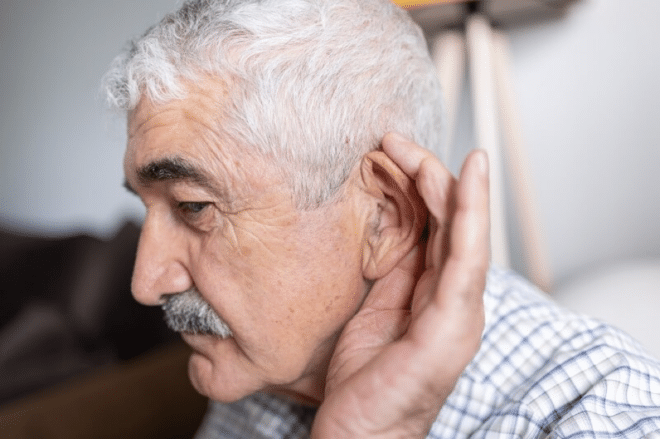Hearing loss can take the joy out of daily life. As audiology technology advances, some patients ask if hearing restoration is possible. Unfortunately, despite how far hearing health has come, fully repairing or restoring hearing is only possible in rare situations. Fortunately, most hearing loss is treatable!
Most adults lose their hearing over time due to natural aging and noise exposure. As we age, cells in the ear which detect sound degrade and can become damaged due to unsafe listening practices. While there is no ‘cure’ for this type of hearing loss, hearing aids are an excellent option for addressing hearing loss so patients can maintain their quality of life.
Hope for Hearing Restoration is Not Lost
New research is being conducted around the world to experiment with hearing solutions. Stem cell therapy is taking place to see if parts of the ear can be regenerated, new drugs are being tested, and experimental surgical procedures are still in the works.
Despite these efforts, there are presently no drugs approved by the FDA to cure hearing loss altogether, and none of the aforementioned methods will be available to the public any time soon, as they are still in testing and development.
Some Surgeries Can Help
If your hearing loss is caused by a blockage, removing the foreign body or tumor may reverse hearing loss. In some cases devices can be surgically implanted to help treat hearing loss. (These are for the most profound cases and done by a physician specializing in the ear.) They include:
- Cochlear implants: for children and adults with profound hearing loss, these devices directly feed inputs to the auditory nerve.
- Bone-anchored hearing aids: these are best for people with deafness in one ear, or conductive hearing loss (which is caused by an obstruction in the ear from conditions such as ear canal abnormalities, chronic ear infections, ruptured eardrums, and so on). This procedure helps to transmit sound through the skull and jaw bones, rather than the obstructed ear.
- Stapedectomy: this is performed in the middle ear, replacing some or all of the original stapes bone with artificial pieces.
Hearing Aids are Still The Best Solution for Most People
Although hearing aids are not able to permanently restore or cure hearing loss, when fitted properly and used correctly, they can significantly improve your hearing health and quality of life.
Hearing aids are like eyeglasses; although the glasses do not fix vision once removed, they are an immensely helpful tool when properly prescribed, constructed, and, of course, worn.
As technology has advanced, hearing aids have become sophisticated devices which not only amplify sound, but can also limit background noise, enhance speech specifically, connect to your smartphone, and more, depending on your specific device model and features enabled.
How Hearing Aids Work
When inserted into the ear canal, hearing aids amplify sound through a three-step system. First, a microphone receives sound. Then, sound is fed through a digital amplifier, making the sound louder and more clear. Finally, the sound comes through to the user’s ear through a small speaker in the device.
Many hearing aids have functions that improve quality of life, such as smartphone management, background noise reduction, and additional protective features. Many hearing aids also have settings to combat tinnitus (ringing in the ear).
Although some hearing aids require batteries that need changing regularly (how often depends on usage),most devices now have a rechargeable option for battery use.
Adjusting to Using Hearing Aids
Like any change or new sensation, hearing aids can take some getting used to. At first, some patients report hearing aids to be uncomfortable, and that becoming accustomed to newly amplified sound can be jarring. Over time, however, once their ears and brain adjust to the ‘new normal,’ most patients are satisfied with their devices and their enhanced quality of life.
If you’re having trouble adjusting to new hearing aids, consult your audiologist. An experienced professional can help fine-tune your device to your needs and comfort level, and find the right solution for your individual situation.
Further, an experienced hearing care professional can help instruct you or a loved one on proper hearing aid maintenance, such as storage and cleaning, which can greatly improve your experience with the devices, and the lifespan of your hearing aid(s).
Schedule an Appointment Today
The compassionate hearing care professionals at Alpaca Audiology can help you find a hearing aid to enhance your hearing experience.While full restoration or a ‘cure’ is not possible at this time, we can help you chart the best path forward for your hearing health.
Find an audiologist near you for help with hearing testing and diagnosis, hearing aid fitting and fine-tuning, and beyond. To schedule an appointment in one of our more than 220 clinics across the country, visit our website for more information on our practice.



